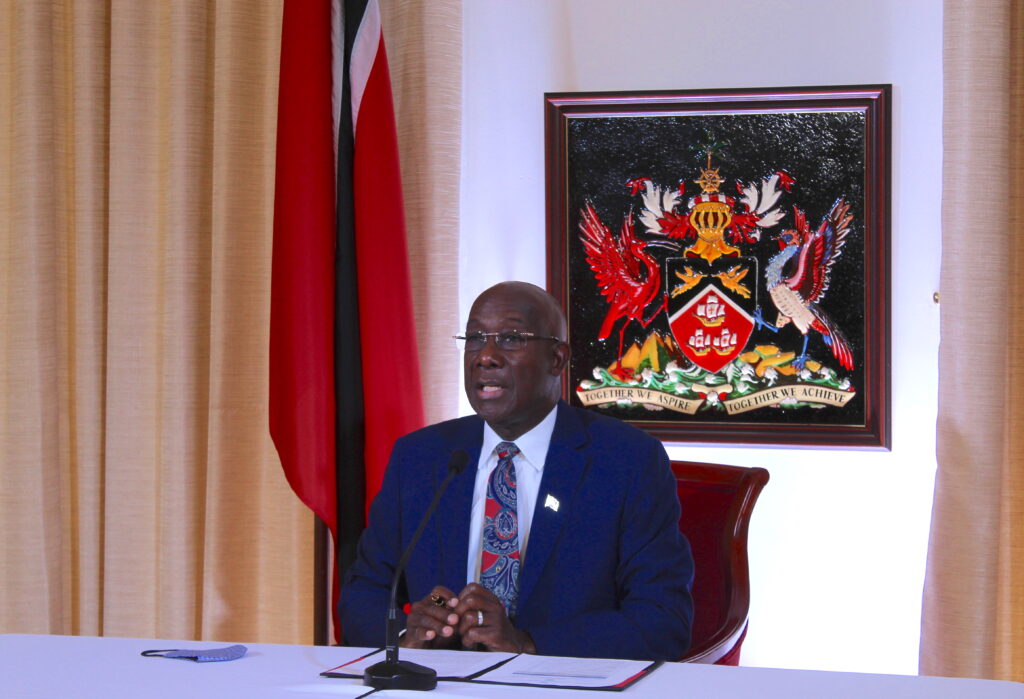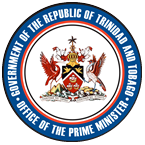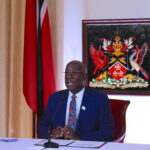- 25 MAY 2021
Prime Minister Rowley Statement United Nations High-Level Roundtable on Extractive Industries – May 25, 2021.

Prime Minister Dr the Hon. Keith Rowley participated in a virtual United Nations High-Level Global Roundtable on Extractive Industries – Financing for Development in the Era of COVID-19 and Beyond. The meeting was convened by United Nations Secretary, General António Guterres.
See the Prime Minister’s statement at the meeting today (Tuesday 25th May, 2021) :
Ladies and gentlemen,
Good morning.
The international community has now endured more than one year of the worst health and economic crises of our generation. The International Monetary Fund has stated that the Caribbean, with Latin America, are among the economies most adversely affected globally by the effects of the COVID-19 pandemic. This statement is eminently accurate, as we are currently witnessing a shift in the trajectory of the pandemic, where its epicentre is moving away from the developed countries to the developing world, where fiscal space remains limited in respect of resources required to cope with the pandemic.
Trinidad and Tobago re-affirms that a robust, inclusive and coordinated global response to the pandemic is imperative. An essential element of this response is ensuring equitable and fair access to COVID-19 vaccines, particularly for small island developing states. I have been advocating for such equity in my engagements with the Director-General of the World Health Organization and with many Heads of Government as Prime Minister of Trinidad and Tobago and as the Chairman of the Caribbean Community. And I take this opportunity to commend the work being done by my counterpart, the Prime Minister of Jamaica, who with the Prime Minister of Canada and you, Secretary-General, launched an initiative that has resulted in an agenda of over 250 policy options to address financing for development in the era of COVID-19 and beyond.
I am of the view that there will be significant opportunities for sustainable development in the post-COVID world. There will continue to be traditional modes of operations in the extractive industries which cannot be replaced, however the world as we know it has changed.
There will be new modes of operations in the future, which we cannot envision today. How well we embrace and master these new modes, turning them into sustainable opportunities, will depend on how well we prepare ourselves for the post COVID environment. In the past, in this industry, we have always had to chase a moving target, our reality today is no different.
Trinidad and Tobago’s National Development Strategy, ‘Vision 2030’, is aligned with the United Nations Sustainable Development Goals and takes into account Trinidad and Tobago’s development imperatives. The incorporation of Renewable Energy and Energy Efficiency into the national energy mix has been identified as a key medium-term sustainable development goal.
In this regard, I can proudly state that Trinidad and Tobago has been and continues to be on the right side of history, having initially used natural gas for electricity generation in 1959 and by the early 2000s being able to boast of 100 percent natural gas usage in our electricity mix.
We have achieved over two decades ago, what many countries today are now implementing. Trinidad and Tobago also continues to see natural gas playing a pivotal role as the transition fuel while we all do our part in adhering to our commitments under the Paris Agreement on Climate Change.
Finally, Trinidad and Tobago commends the Secretary-General for this initiative. During the deliberations over the past months, in the previous five roundtables on ‘Extractive Industries and Sustainable Development and the 2030 Agenda’ there would have been many divergent views. This, together with the discussions today, will certainly contribute to the establishment of a universally applicable foundation for your inaugural Policy Brief on Extractive Industries.
I wish you all the success in this endeavour.
I thank you.





